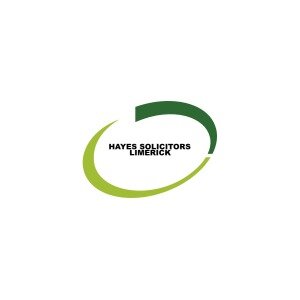Best Collaborative Law Lawyers in Limerick
Share your needs with us, get contacted by law firms.
Free. Takes 2 min.
Free Guide to Hiring a Family Lawyer
List of the best lawyers in Limerick, Ireland
About Collaborative Law in Limerick, Ireland
Collaborative Law is a legal process used in Limerick, Ireland, to resolve family law issues, such as separation or divorce, without going to court. It promotes open communication, respect, and problem-solving between parties, with the support of their specially trained collaborative lawyers. In the collaborative process, both parties and their solicitors agree to resolve disputes privately and amicably, aiming for mutually acceptable outcomes relating to issues like child custody, property, and financial arrangements.
Why You May Need a Lawyer
You may require a collaborative lawyer in several situations, most commonly during family law disputes such as separation, divorce, child custody, or division of assets. Collaborative Law is also appropriate for resolving disputes in a cooperative environment if you wish to avoid the emotional and financial strain of litigation. Some people seek collaborative legal advice to ensure a smoother process when negotiating settlements, addressing parental responsibilities, or deciding on property arrangements, always with the benefit of guided legal support.
Local Laws Overview
Ireland’s family law system, including in Limerick, supports non-court resolution of disputes wherever possible, in line with the Mediation Act 2017. Collaborative Law is a voluntary process recognized by Irish law, where both parties agree to full disclosure of relevant information and work towards settlement without recourse to court proceedings. The process is confidential, and if negotiations fail, both collaborative solicitors must withdraw from the case before it goes to court. Key aspects include:
- Both parties sign a participation agreement setting out ground rules
- Negotiations are conducted through a series of four-way meetings
- Each party must have their own trained collaborative solicitor
- Specialists such as financial consultants or child psychologists may be involved if needed
- Full and honest disclosure of information is required at all times
- The process centers on negotiation and finding solutions that work for families, rather than winning against the other side
Frequently Asked Questions
What is Collaborative Law in Limerick, Ireland?
Collaborative Law is an alternative means of resolving family law disputes in a respectful and cooperative way, without resorting to court proceedings. It is based on voluntary participation and transparent negotiations between parties.
How does Collaborative Law differ from mediation?
While both processes avoid court, collaborative law involves each party being represented by their own specially trained solicitors. In mediation, a neutral third party facilitates discussions, but does not provide legal advice.
Do I need a solicitor for Collaborative Law?
Yes, both parties must be represented by solicitors trained in collaborative law. This ensures legal support and guidance throughout the process.
What issues can Collaborative Law help resolve?
Typical issues include separation, divorce, child custody and access, parenting arrangements, division of assets, maintenance, and financial agreements.
Is Collaborative Law legally binding?
Agreements reached are not immediately legally binding, but your solicitors can draft legally enforceable documents, such as consent orders, once an agreement is reached.
What happens if we cannot agree through Collaborative Law?
If the process breaks down, both collaborative solicitors must withdraw. Parties must then appoint new solicitors to represent them in any subsequent court proceedings.
How long does Collaborative Law take?
The process duration varies depending on the complexity of the issues and the willingness of both parties to cooperate. However, it is generally faster than court litigation.
Is Collaborative Law confidential?
Yes, all discussions and documents shared in the collaborative process are private and confidential.
How much does Collaborative Law cost?
Costs depend on the number of meetings required and the complexity of your case. Often, collaborative law is more cost-effective than going to court due to reduced adversarial conflict.
Can children be involved in the process?
While children do not attend the meetings, specialists or child consultants may be involved to ensure that the children's best interests are central to any decisions made.
Additional Resources
If you need further guidance, you may find the following resources helpful:
- Law Society of Ireland - Provides information on collaborative law solicitors and legal resources
- Legal Aid Board - Offers guidance and, in some cases, legal aid for family law matters
- Irish Family Lawyers Association - Professional body supporting collaborative law practitioners
- Citizen’s Information Limerick - Gives general legal information and local support services
- Family Mediation Service - For those wishing to consider mediation as an alternative or supplementary process
Next Steps
If you believe Collaborative Law could help resolve your family law issues, consider the following steps:
- Contact a collaborative law solicitor in Limerick for an initial consultation
- Discuss your interests and goals, and ask if collaborative law is appropriate for your circumstances
- Gather relevant information or documents about your financial situation, family arrangements, or assets
- Ask your solicitor about the costs, likely timescales, and how to prepare for collaborative meetings
- If you and the other party agree to the process, both will sign a participation agreement and begin the negotiation process under the guidance of your solicitors
Choosing collaborative law can provide a respectful, cost-effective, and confidential way to resolve disputes, helping you move forward with greater certainty and less conflict.
Lawzana helps you find the best lawyers and law firms in Limerick through a curated and pre-screened list of qualified legal professionals. Our platform offers rankings and detailed profiles of attorneys and law firms, allowing you to compare based on practice areas, including Collaborative Law, experience, and client feedback.
Each profile includes a description of the firm's areas of practice, client reviews, team members and partners, year of establishment, spoken languages, office locations, contact information, social media presence, and any published articles or resources. Most firms on our platform speak English and are experienced in both local and international legal matters.
Get a quote from top-rated law firms in Limerick, Ireland — quickly, securely, and without unnecessary hassle.
Disclaimer:
The information provided on this page is for general informational purposes only and does not constitute legal advice. While we strive to ensure the accuracy and relevance of the content, legal information may change over time, and interpretations of the law can vary. You should always consult with a qualified legal professional for advice specific to your situation.
We disclaim all liability for actions taken or not taken based on the content of this page. If you believe any information is incorrect or outdated, please contact us, and we will review and update it where appropriate.















